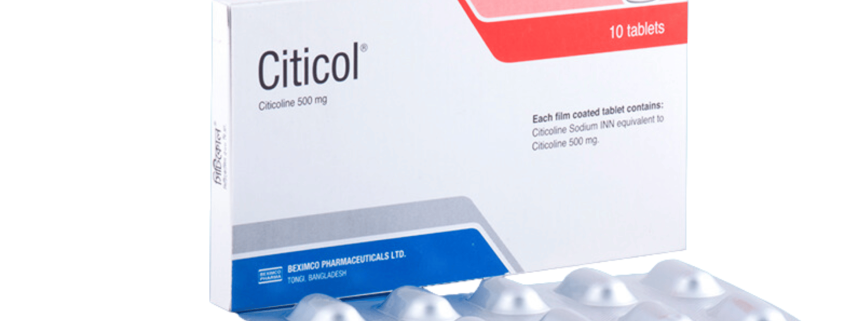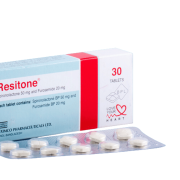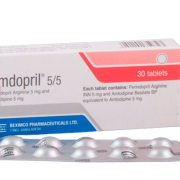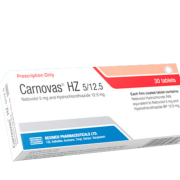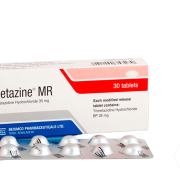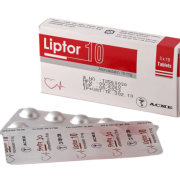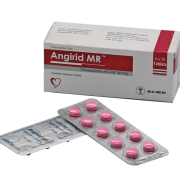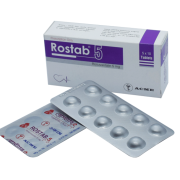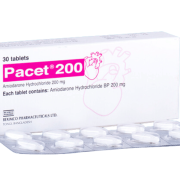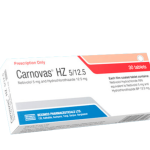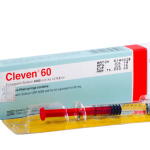Citicol
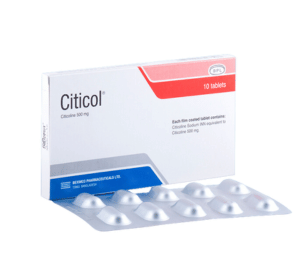
Generic Name: Citicoline
Dosage Form: 500mg/4ml injection
TG Name: Cardiovascular
What is Citicol?
Citicoline is a complex organic molecule that functions as an intermediate in the biosynthesis of cell membrane phospholipids. Citicoline is also known as CDP-choline and cytidine diphosphate choline (cytidine 5′-diphosphocholine). CDP-choline belongs to the group of biomolecules in living systems known as “nucleotides” that play important roles in cellular metabolism.
What is Citicol?
Citicoline is a complex organic molecule that functions as an intermediate in the biosynthesis of cell membrane phospholipids. Citicoline is also known as CDP-choline and cytidine diphosphate choline (cytidine 5′-diphosphocholine). CDP-choline belongs to the group of biomolecules in living systems known as “nucleotides” that play important roles in cellular metabolism.
How Citicol works in our body?
- Citicoline protects brain cells in multiple ways.
- Protects, repairs and rebuilds cell membranes
- Stimulates cholinergic neurotransmission
- Promotes neuronal synaptogenisis
- Decreases apoptosis from ischemia by inhibiting certain intercellular signals involved in apoptotic processes
- Stimulates synthesis and inhibits catabolism of cerebral phospholipids
- Exhibits a protective effect on enzymes involved in brain energy metabolism
- Increases RNA synthesis at certain brain regions
- Positively supports brain energy metabolism
- Decreases ischemic lesion size
It helps to restore cell membrane components called Phospholidpids and counter acts the effects of free radical damage to the membrane. Citicoline provides these activities by increasing a brain chemical called phosphatidylcholine. This brain chemical is important for proper brain function.
What is the indication of Citicol?
Ischaemia stroke, where Citicoline accelerates the recovery of consciousness and overcoming motor deficit. Cognitive disorders of diverse aetiology – e.g. senile cognitive impairment which is secondary to degenerative diseases (e.g. Alzheimer’s disease) and to chronic cerebral vascular disease. Citicoline improves scores on cognitive evaluation scales and slowed the progression of Alzheimer’s disease.
Parkinson′s disease – Citicoline has also been shown to be effective as co-therapy for Parkinson’s disease.
Dosage & administration
Clinical studies indicate the most effective oral dosages for citicoline range from 500-2,000 mg daily. I.V. and I.M. administrations have also used similar dosages.
BY MOUTH:
For decline in thinking skills due to age: 1000-2000 mg of citicoline per day.
Tablet: 1000 mg daily in divided dose with or between meals
For ongoing disease of the blood vessels that serve the brain (chronic cerebro-vascular disease): 600 mg of citicoline per day.
For immediate treatment of stroke due to a clot (ischemic stroke): 500-2000 mg of citicoline per day starting within 24 hours of stroke.
BY INJECTION:
Disturbance of consciousness due to head injury or brain surgery: 100-500 m, 1-2 times daily by iv drip infusion/ iv injection.
Psychological or neurologic disorder: Disturbance of consciousness in the acute stage of cerebral infraction: 1000 mg once a day by IV injection for 2 consecutive weeks.
Hemiplegia after cerebral apoplexy: 1000 mg IV once a day for 4 consecutive weeks & if a trend towards improvement is observed, continue the administration for an additional 4 weeks.
Dosage may be adjusted based on the seriousness of the disease. It can be administered Intramuscularly, intravenously (3 to 5 minute) injection and in intravenous drop perfusion (dripping speed 40-60 drops/minute). Citicol is compatible with all intravenous isotonic solutions. It can also be mixed with hypertonic glucose serum.
What are the contraindications?
Must not be administered to patients with hypertonic of the parasympathetic.
USE IN PREGNANCY AND LACTATIONS:
There is inadequate evidence of safe use of citicoline in human pregnancy. Citicoline should be used in pregnancy and lactation only if the potential benefits justify the potential risks.
NCOMPATIBILITIES:
CITICOL must not be administered in conjunction with medication containing meclofenoxate (also known as clophenoxate).
DRUG INTERACTIONS:
CITICOL potentiates the effects of L-dopa.
SIDE EFFECTS:
Occasionally, citicoline may exert a stimulating action of the parasympathetic system, as well as a fleeting and discrete hypotensive effect.

